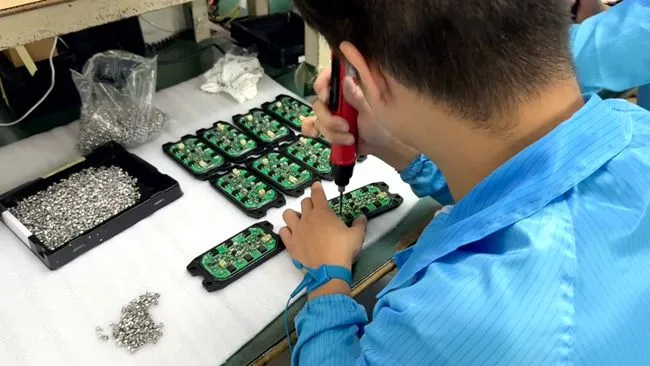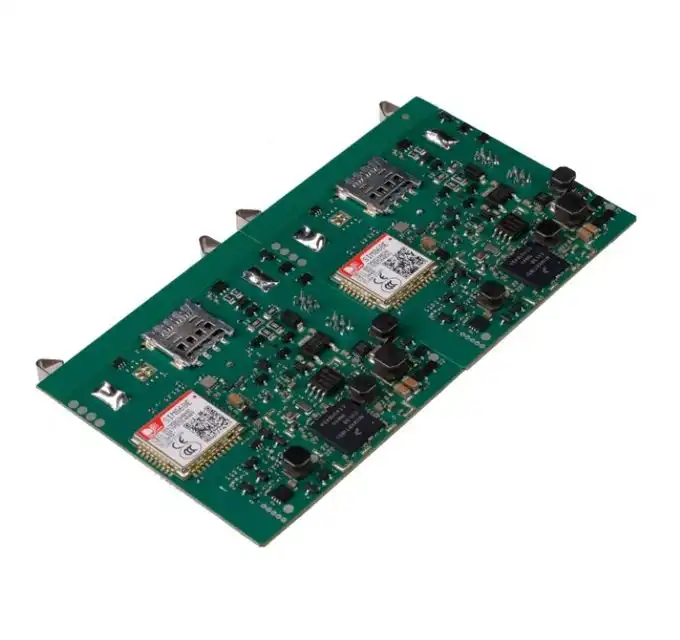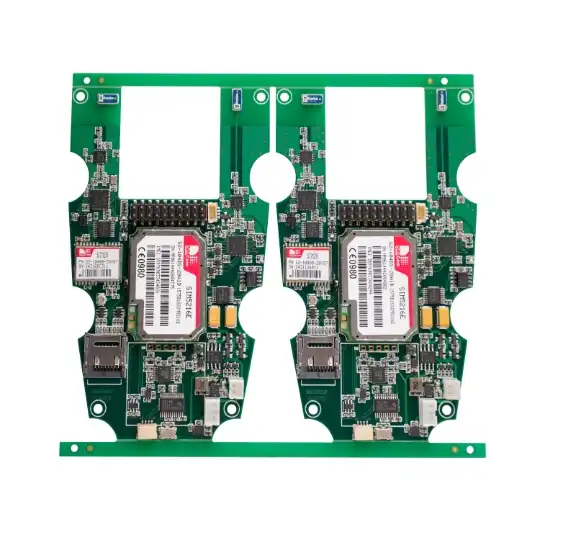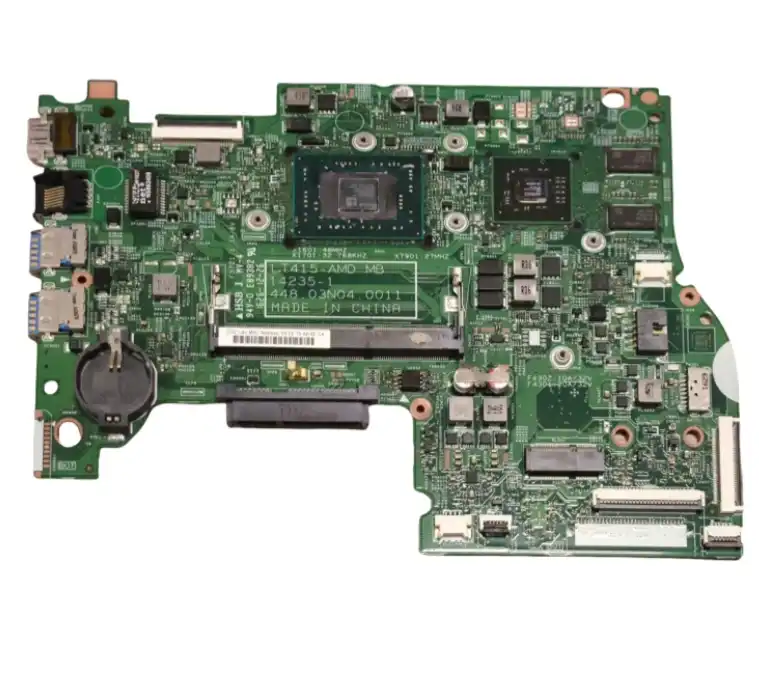Key Factors to Consider When Selecting an SMT PCB Assembly Partner
When embarking on the journey to find the perfect SMT PCB Assembly supplier, it's essential to consider several critical factors that can significantly impact your project's success. The right partner can elevate your product's quality, streamline your production process, and ultimately contribute to your company's growth and reputation in the market.
Technical Expertise and Capabilities
At the forefront of your considerations should be the technical prowess of potential suppliers. A top-tier SMT PCB Assembly provider should possess cutting-edge equipment and demonstrate proficiency in handling a wide array of component types and board complexities. Look for suppliers who stay abreast of the latest industry trends and technologies, as this indicates their commitment to delivering state-of-the-art solutions.
Evaluate their capability to handle different board sizes, thicknesses, and materials relevant to your project. A supplier with a diverse range of assembly techniques, including through-hole and mixed technology capabilities, can offer more comprehensive solutions. Additionally, consider their experience with various component types, such as BGA, QFN, and fine-pitch components, which are increasingly common in modern electronic designs.
Quality Assurance and Certifications
Quality should never be compromised when it comes to SMT PCB Assembly. A reputable supplier will have robust quality management systems in place, backed by industry-standard certifications. Look for certifications such as ISO 9001, which demonstrates a commitment to quality management, and IPC standards compliance, which ensures adherence to accepted industry practices for electronics manufacturing.
Inquire about their inspection and testing procedures. Advanced optical inspection systems, X-ray inspection for hidden solder joints, and in-circuit testing capabilities are indicators of a supplier's dedication to delivering high-quality assemblies. Furthermore, ask about their defect rates and yield percentages to get a clear picture of their quality performance.
Production Capacity and Flexibility
The ability to scale production according to your needs is a crucial aspect of choosing an SMT PCB Assembly supplier. Assess their production capacity to ensure they can handle your current volume requirements and potential future growth. A supplier with multiple production lines and the ability to quickly reconfigure for different product runs can offer the flexibility needed in today's fast-paced market.
Consider their approach to both high-volume and low-volume orders. Some suppliers excel at mass production but may not be as accommodating for prototype or small batch runs. The ideal partner should be able to efficiently handle your specific production needs, whether you require thousands of units or just a few dozen for a specialized project.
Evaluating the Supplier's Track Record and Reputation
While technical capabilities are crucial, the reliability and reputation of an SMT PCB Assembly supplier play an equally important role in ensuring a successful partnership. Delving into a supplier's history and standing in the industry can provide valuable insights into their ability to meet your project requirements consistently and professionally.
Industry Experience and Client Portfolio
A supplier's longevity in the industry often correlates with their ability to adapt to changing technologies and market demands. Investigate how long the supplier has been in business and their experience specifically in SMT PCB Assembly. A company with a rich history in the field is likely to have encountered and overcome various challenges, making them better equipped to handle complexities in your project.
Examine their client portfolio to gauge the diversity of industries they serve. A supplier that works with clients across different sectors, such as aerospace, medical devices, telecommunications, and consumer electronics, demonstrates versatility and a broad knowledge base. This diversity can be particularly beneficial if your project requires specialized expertise or adherence to industry-specific standards.
Customer Testimonials and Case Studies
Nothing speaks louder than the experiences of previous clients. Request customer testimonials or case studies that showcase the supplier's performance in projects similar to yours. These real-world examples can provide insights into the supplier's problem-solving abilities, communication style, and overall customer satisfaction levels.
Pay attention to feedback regarding on-time delivery, quality consistency, and the supplier's ability to handle unexpected challenges. Positive testimonials that highlight a supplier's proactive approach to addressing issues and their commitment to continuous improvement are strong indicators of a reliable partner.
Financial Stability and Long-Term Viability
The financial health of your SMT PCB Assembly supplier is a critical factor that is often overlooked. A financially stable supplier is more likely to invest in new technologies, maintain quality standards, and weather market fluctuations without compromising on service quality.
While detailed financial information may not always be publicly available, look for signs of stability such as consistent growth, investments in new equipment or facilities, and long-standing relationships with major clients. A supplier with a strong financial foundation is better positioned to support your long-term production needs and adapt to changing market conditions.
Communication and Support: Ensuring a Smooth Collaboration
The success of your SMT PCB Assembly project heavily relies on effective communication and robust support from your chosen supplier. A partner who excels in these areas can significantly reduce project risks, minimize delays, and ensure that your expectations are consistently met throughout the production process.
Clear and Responsive Communication Channels
Effective communication is the cornerstone of any successful business relationship. Evaluate the supplier's responsiveness during your initial interactions. Do they reply promptly to your inquiries? Are they proactive in providing information and clarifying doubts? A supplier that values clear communication will have established channels for regular updates, issue resolution, and project coordination.
Look for suppliers who offer dedicated account managers or project coordinators. These points of contact can streamline communication, ensuring that your queries and concerns are addressed efficiently. Additionally, consider the supplier's ability to communicate effectively across different time zones if you're working with an international partner.
Technical Support and Design for Manufacturability (DFM)
A top-tier SMT PCB Assembly supplier should offer more than just assembly services. They should be a true partner in your product development process. Assess the level of technical support they provide, particularly in terms of Design for Manufacturability (DFM) feedback.
Suppliers with strong DFM capabilities can review your PCB designs and offer valuable suggestions to improve manufacturability, reduce costs, and enhance product reliability. This proactive approach can save time and resources by identifying potential issues before they become problems in production.
Flexibility and Problem-Solving Attitude
In the dynamic world of electronics manufacturing, challenges are inevitable. The true measure of a supplier's worth often lies in their ability to adapt to changes and solve problems efficiently. Look for a partner who demonstrates flexibility in accommodating last-minute design changes or rush orders without compromising on quality.
Inquire about their problem-solving processes. How do they handle unexpected issues that arise during production? A supplier with a systematic approach to problem-solving, coupled with a willingness to go the extra mile to meet your needs, can be an invaluable asset in navigating the complexities of SMT PCB Assembly projects.
Conclusion
Choosing the right SMT PCB Assembly supplier is a critical decision that can significantly impact the success of your project. By carefully evaluating technical capabilities, track record, communication skills, and support offerings, you can identify a partner who not only meets your current needs but also supports your long-term growth objectives. Remember, the best supplier is not just a vendor but a collaborative partner invested in your success.
When searching for SMT PCB Assembly manufacturers or suppliers, consider companies that offer comprehensive solutions, from design review to final assembly. Look for PCB assembly providers with a proven track record of delivering high-quality products consistently. By partnering with a reputable SMT PCB Assembly manufacturer, you can ensure that your project benefits from expert craftsmanship, cutting-edge technology, and reliable support throughout the production process.
FAQ
What is SMT PCB Assembly?
SMT PCB Assembly is the process of attaching electronic components to a printed circuit board using surface mount technology. This method allows for more compact and efficient circuit designs compared to traditional through-hole assembly.
How long does SMT PCB Assembly typically take?
The timeline for SMT PCB Assembly can vary depending on the complexity of the board and the volume of production. Generally, it can range from a few days for prototypes to several weeks for large-scale production runs.
What certifications should I look for in an SMT PCB Assembly supplier?
Key certifications include ISO 9001 for quality management, IPC standards compliance, and industry-specific certifications like ISO 13485 for medical devices or AS9100 for aerospace applications.
Choose Ring PCB for Your SMT PCB Assembly Needs | Ring PCB
Ring PCB stands out as a premier choice for SMT PCB Assembly, offering unparalleled expertise and cutting-edge solutions. With our team of 500+ professionals, state-of-the-art facilities, and commitment to quality, we deliver exceptional results for projects of all scales. Our 24/7 operation ensures seamless collaboration across time zones, while our comprehensive services cover every aspect of PCB production. Experience the difference with Ring PCB - your trusted SMT PCB Assembly manufacturer and supplier. Contact us at [email protected] to elevate your next project.
References
1. Smith, J. (2023). "Comprehensive Guide to SMT PCB Assembly Supplier Selection." Electronics Manufacturing Quarterly, 45(2), 78-92.
2. Johnson, A., & Brown, T. (2022). "Quality Assurance in SMT PCB Assembly: Best Practices for Supplier Evaluation." Journal of Electronics Manufacturing, 18(3), 301-315.
3. Lee, S. (2021). "The Impact of Supplier Communication on PCB Assembly Project Success." International Journal of Supply Chain Management, 9(4), 112-126.
4. Zhang, X., & Wilson, R. (2023). "Technological Advancements in SMT PCB Assembly: What to Look for in a Modern Supplier." Tech Innovations Review, 7(2), 45-59.
5. Patel, N. (2022). "Cost-Efficiency vs. Quality: Balancing Priorities in SMT PCB Assembly Supplier Selection." Manufacturing Economics Today, 31(1), 88-102.






